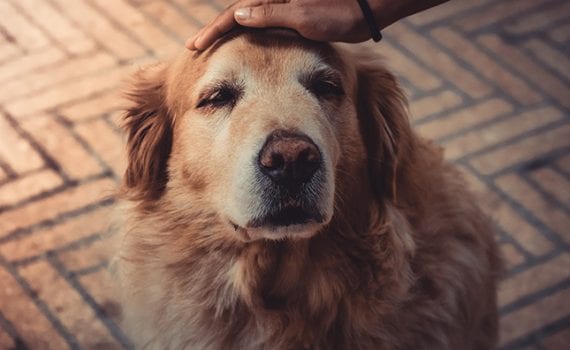
November is National Senior Pet Month
By Carol Kendig
When are Pets Considered Seniors?
Is your dog 7 years old or older? That’s the magic number for determining senior status in most dogs. Smaller breeds aren’t considered golden oldies until they are 10 years old while the giant breeds hit senior status at age 6. Cats are seniors from age 10 – 14 years and are called super seniors above age 15.
The Perks and Pitfalls of Being a Senior Pet
Our senior pets are special. We’ve shared more heart-warming experiences with them through the years and loved them longer so when those muzzles start turning grey and we see them slowing down it can be distressing for us. Some of the problems we may see in our older pets are painful joints resulting in general reduced mobility, and because of less activity weight gain is not uncommon. Slowed digestion can also be an issue. Higher risk of heart disease, diabetes, dental problems and kidney problems often materialize with advancing years.
Improving Quality of Life Through Diet
To help our beloved cats and dogs in their senior years we need to focus on feeding them the highest quality and least processed proteins available. If you are feeding a raw diet continue to do so. If you are feeding kibble, try adding some raw food as a topper. If it agrees with your pet, try increasing the raw up to 50% of her diet. Definitely lower the amount of carbohydrates you are feeding as carbs slow digestion and add weight. Adding some healthy fiber to your dog’s diet will also aid her digestion and provide her with needed phytonutrients.
Cats simply need higher quality protein without added fruits and veggies. Since cats are obligate carnivores, raw protein is the most biologically appropriate diet for them. However, it can be very difficult switching a kibble fed cat to a raw diet in her senior years. Some cats adjust to freeze-dried raw easier than frozen raw diets because of the dry texture. But it may take a while to convince your cat that her new frozen raw or freeze-dried raw high-quality protein food is what she really wants to eat. If you own a cat, you know they have opinions!
The raw diets formulated at Northwest Naturals are appropriate for senior dogs and cats. The proteins are of the highest quality, minimally processed and are the primary ingredient in our dog food. At 80% protein the diets are palatable and healthy. In NWN dog food veggies and fruit comprise 18.5 % of the diet. They provide needed fiber and are rich in antioxidants, both important elements in a senior’s diet to protect against cancer and diabetes. Natural supplements are the final 1.5% of the recipe to make sure all nutritional bases are covered.
Cats will thrive well into their senior years eating a 98% raw protein diet with the addition of 2% natural supplements to ensure each meal is complete and balanced for their unique nutritional needs.
Other Tips for Taking Care of Your Senior Pet
Providing our senior pets with optimal nutrition is one of the most important elements in making their declining years their golden years. But we cannot overlook such simple things as perhaps providing more comfy orthopedic beds, switching to raised bowls and making sure toys are appropriate for aging mouths. Puzzle toys and feeding games can also be helpful for slowing cognitive decline. Shorter walks give you both time to stop and smell the roses as your pet enters this slower more contemplative time of life. Spend time looking deeply into your pet’s eyes and savor the love and contentment you see there. Hopefully, we will all age as gracefully as our beloved pets.